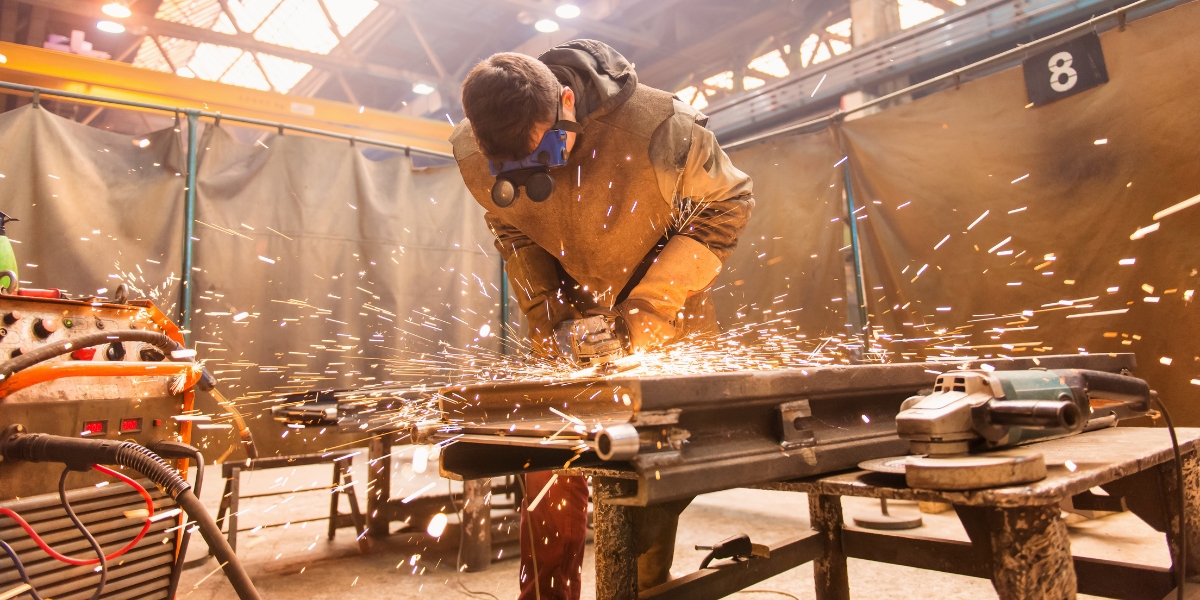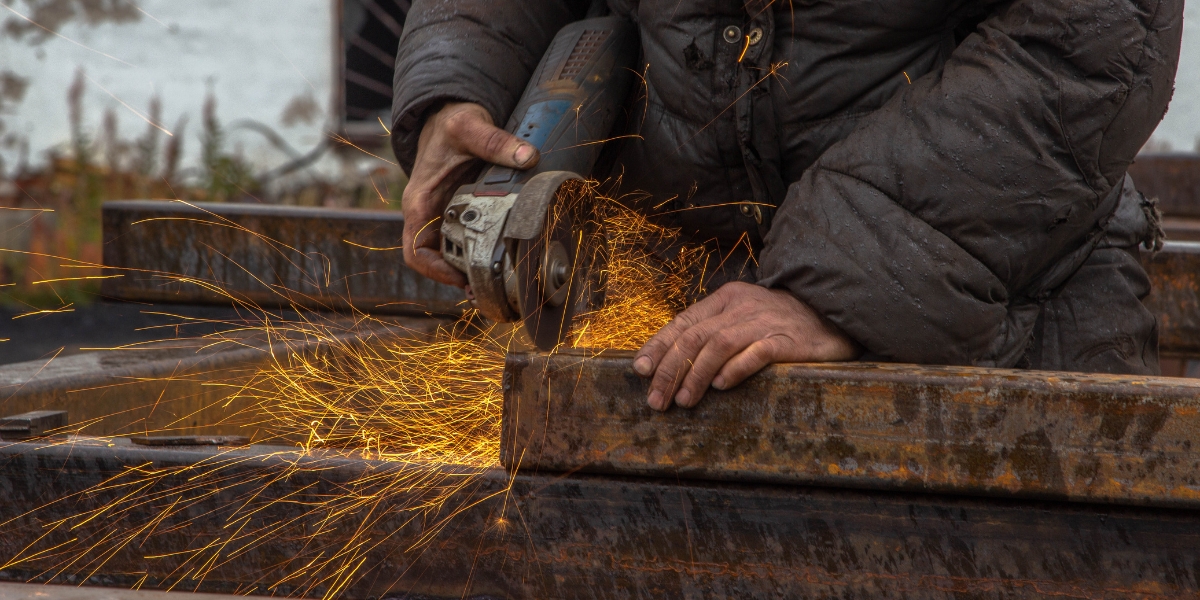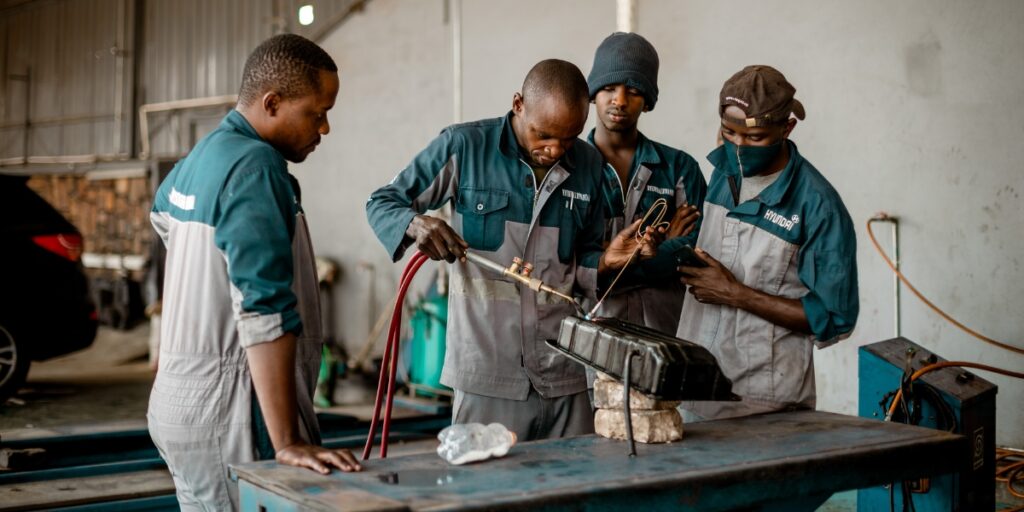In the realm of construction projects, the question of whether mobile welding or traditional welding is more cost-effective has garnered considerable attention.
This article aims to provide a comprehensive analysis of the comparative cost-effectiveness of these two methods.
By examining various factors such as equipment costs, labor expenses, project timelines, and project scope and complexity, this study seeks to determine which approach offers a more financially prudent solution.
The findings presented here will assist professionals in making informed decisions about the most suitable welding method for their construction projects.
Key Takeaways
– Mobile welding equipment has lower maintenance requirements compared to traditional welding setups.
– Mobile welding offers greater flexibility and portability, allowing for increased accessibility and mobility.
– Mobile welding reduces labor costs through automation, while traditional welding requires skilled workers, increasing labor costs.
– Project timelines can vary between mobile welding and traditional welding, and may require additional planning and coordination.

Comparison of Equipment Costs
The comparison of equipment costs between mobile welding and traditional welding for construction projects is a crucial aspect to consider.
In terms of maintenance requirements, traditional welding typically requires more regular upkeep due to the larger size and complexity of the equipment involved. This includes routine inspections, repairs, and component replacements, which can incur additional costs over time.
On the other hand, mobile welding equipment is generally smaller and simpler in design, resulting in lower maintenance requirements.
Accessibility and mobility are also important factors when comparing equipment costs. Traditional welding setups often require fixed infrastructure such as dedicated workstations or welding booths, which can restrict accessibility and limit mobility on construction sites.
Mobile welding equipment offers greater flexibility and portability, allowing welders to access various locations easily without the need for extensive setup or transportation of heavy machinery.
Overall, considering maintenance requirements along with accessibility and mobility can help determine the cost-effectiveness of mobile versus traditional welding methods for construction projects.
Analysis of Labor Expenses
Analysis of labor expenses reveals significant differences between mobile and traditional welding methods in the context of construction projects.
The impact of automation plays a crucial role in determining the overall cost-effectiveness. Mobile welding, which utilizes automated systems, reduces labor costs by minimizing manual intervention. This method requires less skilled workers as the automated equipment performs most of the tasks with precision and efficiency.
On the other hand, traditional welding relies heavily on manual labor, requiring highly skilled welders to carry out complex tasks. The skill level requirements for traditional welding are higher due to the need for precise control over welding parameters and techniques. Consequently, employing skilled welders increases labor costs associated with traditional methods.
Therefore, when considering labor expenses in construction projects, it is essential to factor in both automation’s impact and skill level requirements to determine which method is more cost-effective.

Examination of Project Timelines
Examining project timelines allows for a comprehensive understanding of the time constraints and scheduling considerations present in different construction methods. This analysis is crucial in determining the impact on project efficiency and quality control.
Here are five key aspects to consider:
– Mobilization: The time required to set up equipment and resources for mobile welding may vary significantly compared to traditional welding methods, potentially impacting project efficiency.
– Access to site: Mobile welding may require additional planning and coordination due to transportation logistics, which can affect both project efficiency and quality control.
– Workforce availability: The availability of skilled welders at the construction site can influence project timelines, affecting both efficiency and quality control measures.
– Interference with existing operations: In some cases, traditional welding methods may cause disruptions or limitations in ongoing construction activities, leading to delays or compromised quality control.
– Inspection requirements: Both mobile and traditional welding methods must adhere to stringent inspection procedures. However, the specific inspection processes can differ between these techniques, potentially impacting overall project efficiency and quality control.
Consideration of Project Scope and Complexity
Consideration of project scope and complexity necessitates a thorough evaluation of the specific requirements and intricacies involved, which can have significant implications for project planning and execution.
Scope limitations refer to the boundaries within which the project will operate, encompassing factors such as time, budget, resources, and deliverables. These limitations must be carefully defined to ensure that the project objectives are achievable within the given constraints.
Complexity challenges arise from the intricate nature of certain projects, often involving multiple stakeholders, intricate dependencies between tasks, or technical difficulties. Understanding these challenges is crucial for effective project management as it allows for proactive identification and mitigation of potential risks and issues.
Determining Long-Term Cost-Effectiveness
Evaluating the long-term cost-effectiveness of a project involves assessing the financial implications over an extended period, considering factors such as maintenance expenses, operational costs, and potential savings or benefits.
When comparing mobile welding to traditional welding in construction projects, it is important to analyze both cost-saving strategies and potential drawbacks associated with each method.
Mobile welding offers the advantage of flexibility and convenience since it allows for on-site repairs without transporting materials back and forth. This can potentially reduce transportation costs and minimize project delays. However, there may be higher upfront investment costs involved in setting up a mobile welding unit compared to traditional fixed welding stations.
Additionally, mobile welding might not be suitable for large-scale projects that require specialized equipment or involve complex structural requirements.
Therefore, an assessment of the long-term cost-effectiveness should consider these factors to determine which method is more advantageous for a specific construction project.

Frequently Asked Questions
What are the environmental impacts of mobile welding compared to traditional welding in construction projects?
The environmental impacts of mobile welding compared to traditional welding in construction projects include emissions from fuel consumption, noise pollution, and waste generation. Cost comparisons between the two methods should also consider these environmental factors.
Are there any safety concerns specific to mobile welding that should be considered?
Safety concerns specific to mobile welding include the potential for fire hazards, electrical shocks, and exposure to toxic fumes. Regular equipment maintenance is crucial to prevent accidents and ensure safe operation.
How does the quality of welds differ between mobile welding and traditional welding?
The quality of welds can vary between mobile welding and traditional welding techniques. Factors such as equipment, skill level, and environmental conditions may impact the quality. Further research is needed to provide a comprehensive comparison.
What are some common challenges or limitations of using mobile welding in construction projects?
Mobile welding in construction projects faces common challenges and limitations. These include limited workspace, lack of equipment mobility, potential safety hazards, difficulty in maintaining quality control, and increased complexity in project logistics.
Are there any specific regulations or permits required for mobile welding on construction sites?
Regulations and permits are necessary for mobile welding on construction sites. These requirements ensure compliance with safety standards, environmental regulations, and proper certification of welders. Failure to adhere to these can result in legal consequences or project delays.

